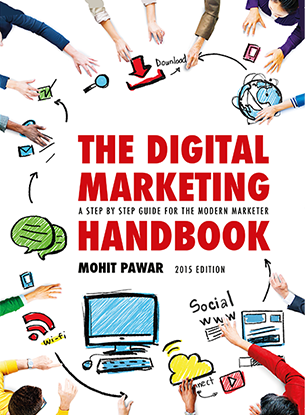Are you planning to make a switch?
The fuel for your desire may be varied work, more money, work satisfaction, bigger challenges or faster growth. It can also be the lure of a sunrise industry or you are inspired by somebody who you appreciate for their work.
Whatever the reason, a switch into a new industry should be thought out well.
A successful switch involves a decision, preparation, and action.
Let us explore.
Decision
Thoughts drive action. An idea emerges first, then person reasons about right and wrong and finally decides whether to take action or not.
A person can engage in thoughtless action but that will not help us here.
When the thought of switch emerges just ask yourself why you want to do it? For money, bigger challenges, better opportunities, more learning. You may be feeling a sense of adventure also.
This is important because then you can go after the opportunities that fit the bill. There are opportunities that offer good money or a fancy title. Start-ups may offer better hands-on exposure, less salary initially but potential of higher earning later through stock options.
Decide on
- The time within which you want to switch over
- Is there a budget that you want to allocate to the entire exercise (learning and switch)
- Take a call whether the switch will be in a job or your own venture
Be realistic
- It is a big decision depending on how early or late in your career you decide to make the switch
- Be ready to put some extra hours at workplace or outside — work in a new industry is like starting afresh. Thinking about your first job or first venture; how you worked then. Apart from learning new things, you will also need to make new connections.
- Give yourself 3-6 months to get the hang of things and 18-24 months to blend well that is to reach a stage where you can move to a new company; because by this time you will have some success to show on your profile/resume
Preparation
Start with Learning
Before making the switch take time to learn about the field. This is the core action you must invest your time in. If you have been on the parallel path for a while then you would already have some grasp over skill-set required in the new field.
Learning is of two types — structured and unstructured. Pick one that suits you. Better use a mix of both. If you have decided to switch, use following techniques to learn.
- Read top 10 books in that field with next 3-6 months
- Get old magazines or buy current issue form the shelf and continue reading till the time you make the switch and beyond
- Make notes all the time
- Blogging helps if you are trying to make a mark or learn about a new field. It forces you to learn, you also get to read and write about your learning. You can also start a video show. Also make a point to subscribe to the blogs of industry though leaders in your chosen field.
- Join a seminar or online training program
- Attend industry events; better organize industry events
There may be some skills that will be transferable from one job to other. A marketer can bring his knowledge to work in the field of digital marketing.
Skills like communication, public speaking, and writing — work in all fields with varied degree.
How will this help you?
This will help you know about the core topics and the key figures in the industry. Reading magazines and blogs will help you keep a tab on current trends in the industry.
Parallel Path first
This is an intelligent strategy. You still have the work you are doing and not risking it. Taking a calculated risk is better. Parallel path helps you achieve that. Once you are comfortable with new field try, you will be ready to take action.
Action
You should start by learning and at same time get into networking and opportunity search mode.
If you are planning to start an enterprise; the action will include brainstorming about the product or service to be offered; making notes about competition, deciding on the name, promotion strategy. You will also make notes about the conservative investment required and the amount required for survival assuming that you make nothing for next 12 months.
After you take the plunge, see if you want to go for a traditional degree program. This is more suited to those who are keen on structured learning.
Have you made the switch or planning it in near future?
Wish you great success.




Pingback: Good learning mix - Mohit Pawar . com